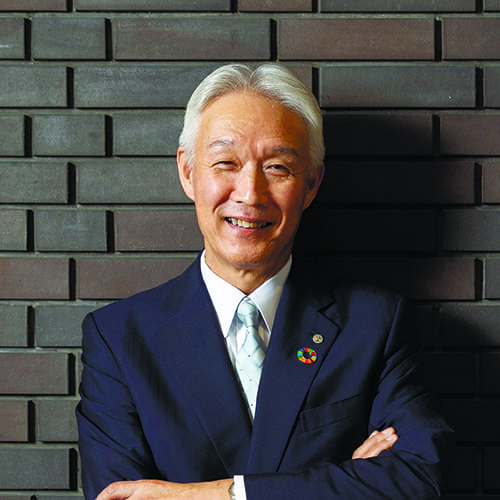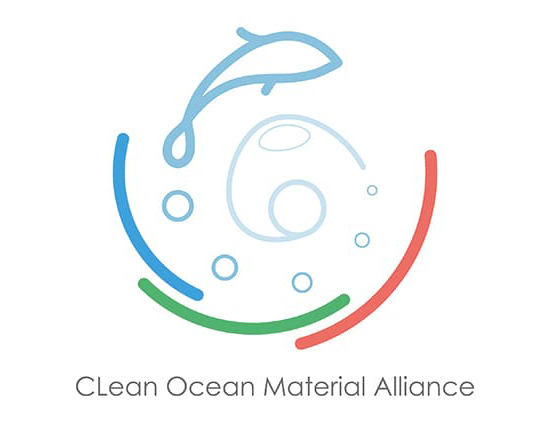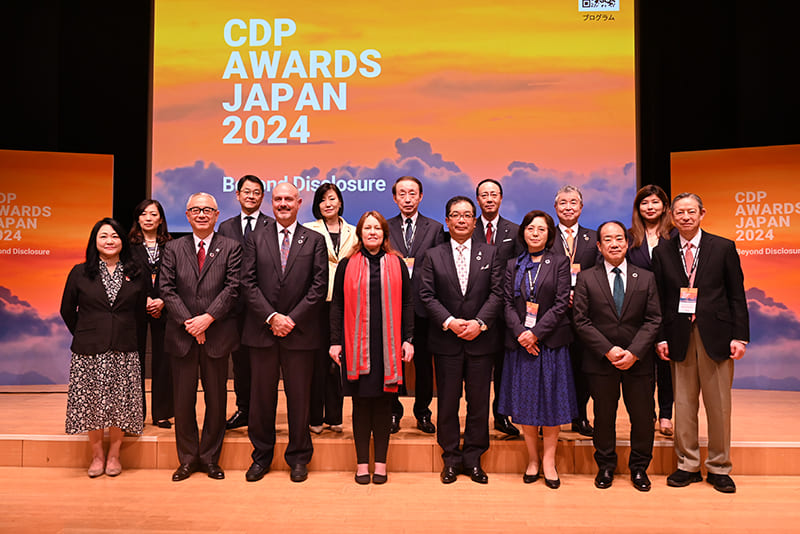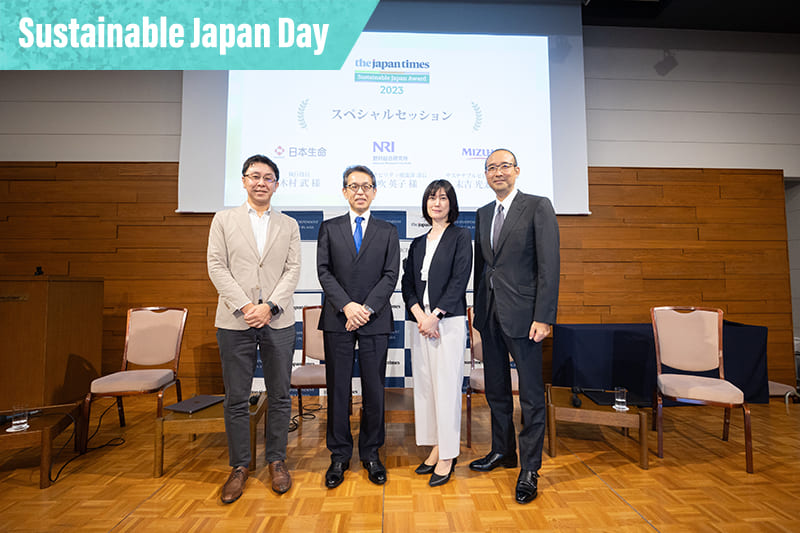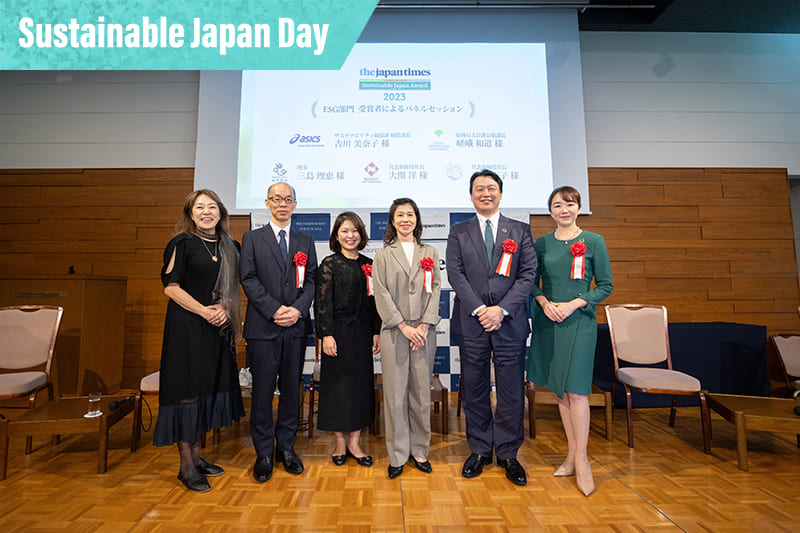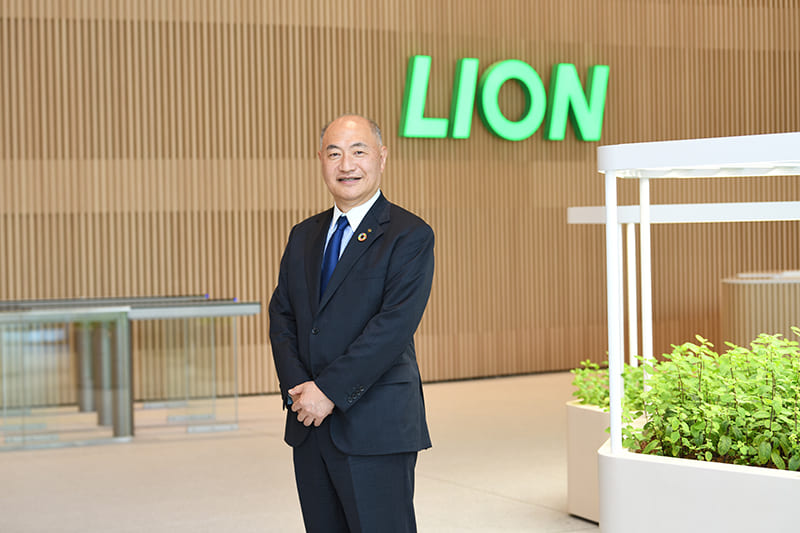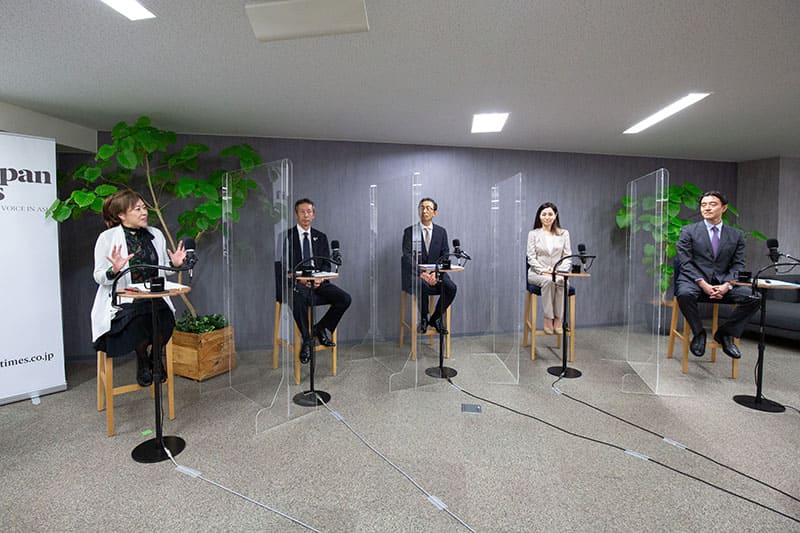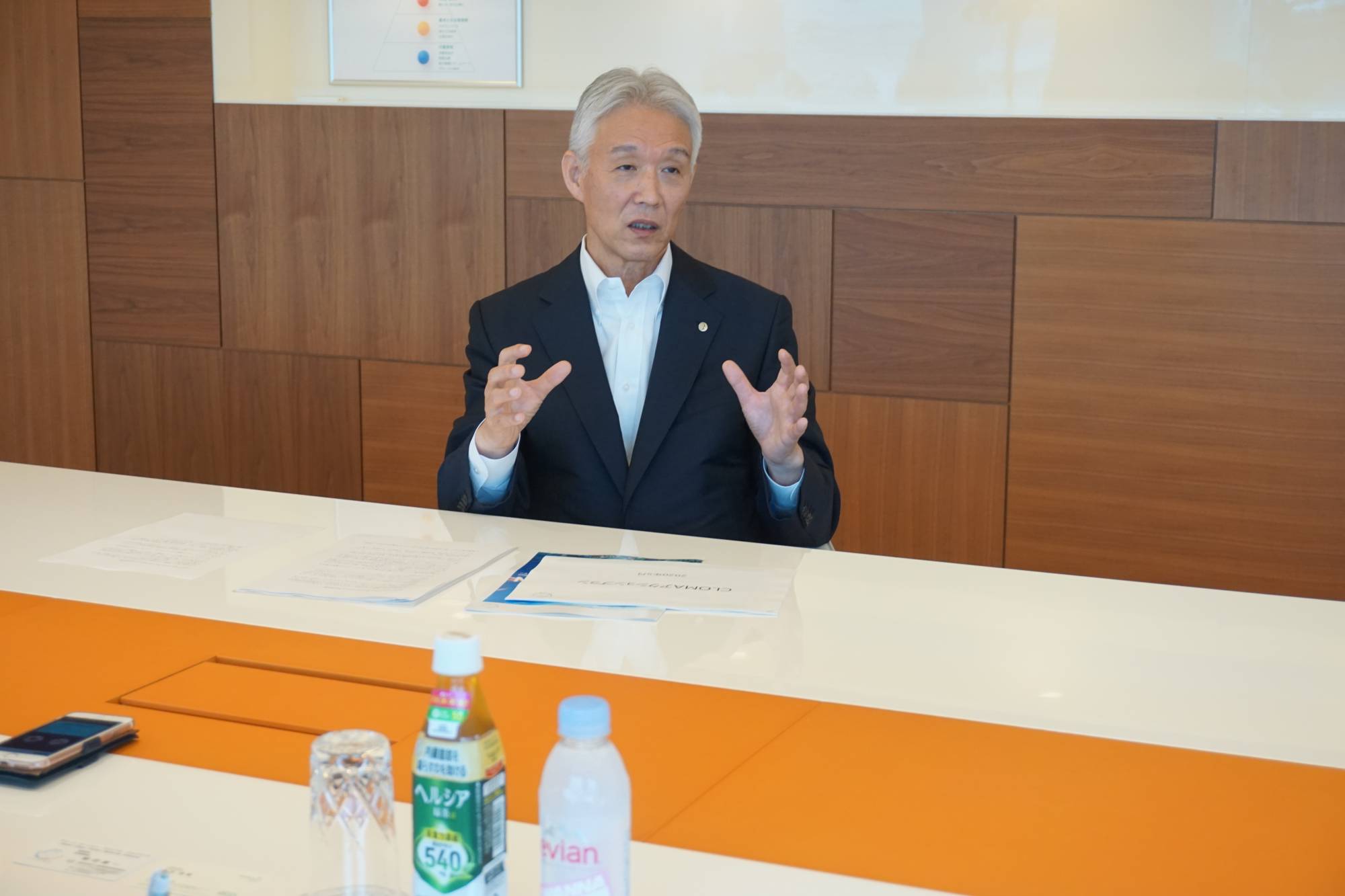October 21, 2022
Shining a spotlight on the efforts of ESG winners
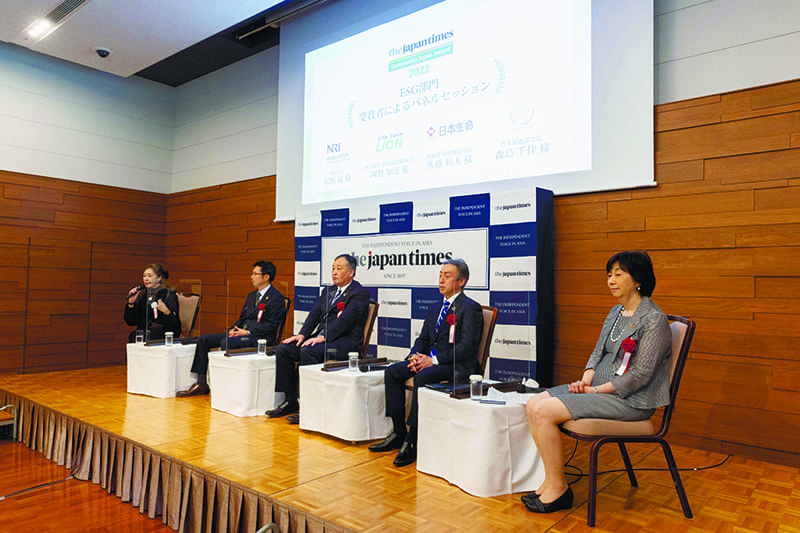
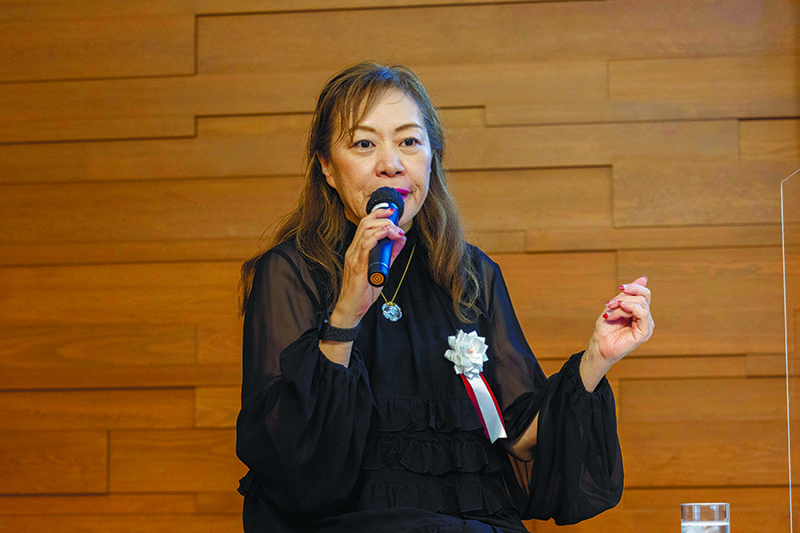
Director of CDP Japan
The Sustainable Japan Award ceremony featured a panel discussion by the four companies awarded in the ESG category, moderated by Michiyo Morisawa, Japan head of the Principles for Responsible Investment (PRI) and CDP (formerly the Carbon Disclosure Project).
Speakers from Nomura Research Institute (NRI), which received the Grand Prize, Lion Corp. and Nippon Life Insurance Co., which received the Excellence Award, and the Japan Clean Ocean Material Alliance (CLOMA), which received the Special Award in the ESG (environmental, social and governance) category, participated in the panel discussion to talk about the initiatives of the companies, which are working diligently to achieve steady results toward a sustainable society, as well as the importance of working together with other stakeholders to address social issues and to create new future value.
Takeshi Hihara, senior managing director of NRI, said, “We gain an insight into the paradigm of a new society and assume the responsibility of realizing it.” A significant turning point was the merger between the former Nomura Research Institute Ltd., founded as Japan’s first private think tank, and Nomura Computer Systems Co. Ltd., a systems integrator, in 1988. NRI is a class-leading business consultancy and information technology firm. It leverages its strengths to gain insights into the future and take on the task of making it real. This is where NRI’s value lies, Hihara said. IT initiatives account for over 90% of its business, creating and operating systems and providing shared-use services. In the 2020s, the company created a sustainability-related consulting and corporate social responsibility (CSR) office as part of its social contribution activities. Already, around 2018, it had created a framework for sustainable management and included that in its interim management plan for 2019 and 2020. Compared to a situation in which each company builds and operates its own system, NRI’s joint-use service — which is the de facto standard in the financial industry and boasts a high market share — reduces the environmental impact and emissions of carbon dioxide by 73.9%. To reduce its own environmental impact, it also uses renewable energy in its data centers, which require a large amount of electricity, and will soon reach 100% utilization. NRI provides digital transformation (DX) services of the three types DX1.0, DX2.0 and DX3.0, which respectively contribute to the transformation of existing business processes, resolve social issues and achieve paradigm transformation. The company has expanded its business by providing consulting services and visualization tools for decarbonization and aims to contribute to its customers through digital transformation and create value for society.
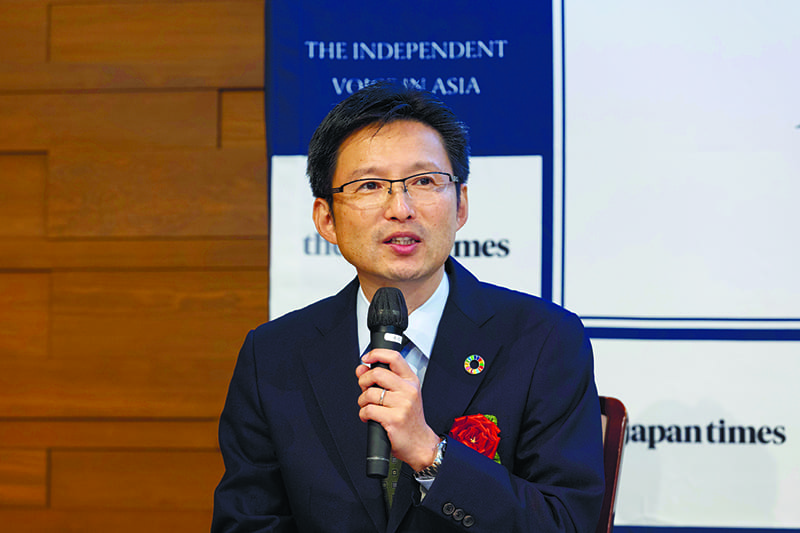
Nomura Research Institute, Senior Managing Director
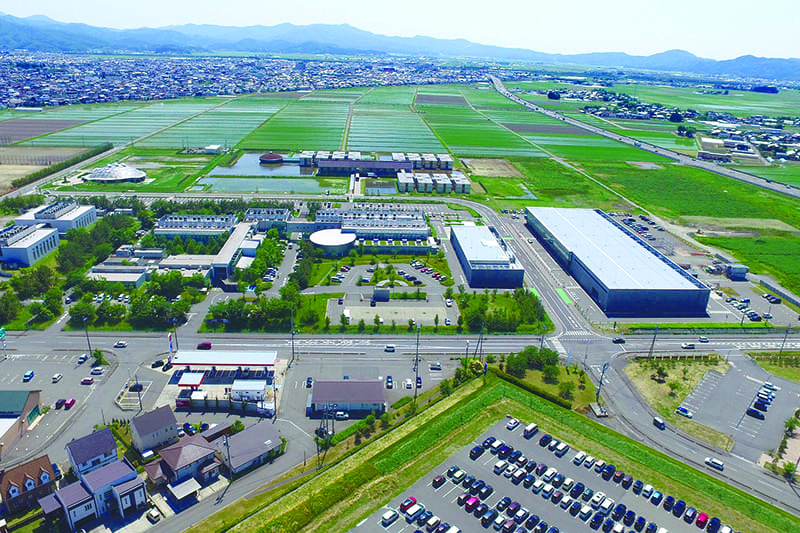
Lion: Healthy lifestyles
Lion Corp., a company making daily commodities such as toothpaste and laundry detergent, is committed to reducing the environmental impact of its business groups by doing what it can at each stage throughout product life cycles. Considering carbon dioxide emissions at the stage of transporting raw materials, the company is working on a new format in which the factories of several companies are located next to each other. The company also contributes to emissions reduction in logistics by working with other companies to deliver products. Since household consumption of electricity and water account for a large portion of the total, the company aims to promote healthy lifestyles to tackle the issue. “There is not much that one company can do. However, we want to contribute to the world by working with many people to change lifestyle habits,” said Tomomichi Okano, an executive officer the company.
Lion aims to “make a difference in everyday lives by redesigning habits.” The reason for the significant decrease in cavities in the past 30 years is due to lifestyle changes, said Okano. People brush their teeth more frequently due to the efforts of the company, the dental association, the educational field and others. The company also aims for people to still have 20 of their teeth at the age of 80. Its statistics show that already, more than 50% of those 80 years old have achieved this goal.
One such initiative is to create the habit of not throwing away used toothbrushes. Used toothbrushes are collected at school recycling boxes, recycled into rulers, and returned to the schools that collected them. Another initiative is a joint effort by Kao Corp. and Lion to create a social infrastructure that allows the recycling of refill pouches made of composite materials, including those from other companies.
Lion focuses on how to change lifestyles, not the products it already has. When analyzing behavior, it is difficult to find out in what situations carbon dioxide is emitted. The company aims to visualize the issue by using digital technology.
Lifestyle changes that are enjoyable lead to sustainable habits. The company aims to realize adjustments to people’s lifestyles so that we find ourselves living in an environmentally friendly way. Okano said: “The company’s strength lies in its closeness with its customers. We take this advantage as our responsibility and aim to create a new culture together.
“When you purchase home appliances, a house or a car, it is a major opportunity to change your lifestyle habits. We are eager to see what we can do within this new framework and are strongly interested in taking opportunities with companies with which we have never collaborated before,” concluded Okano.
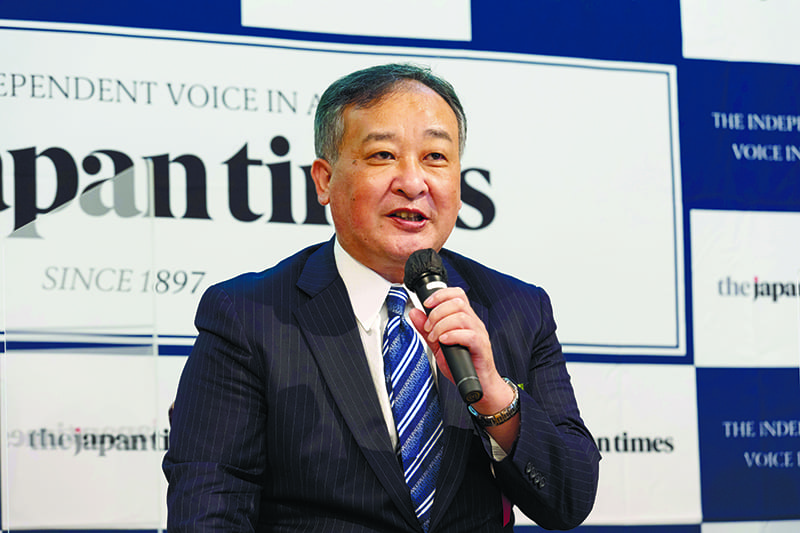
Lion Corp. Executive Officer
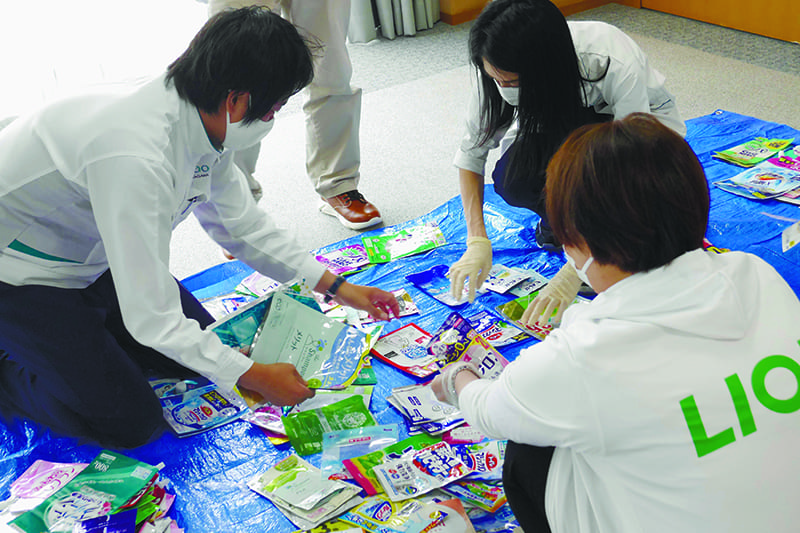
Nippon Life’s initiatives
Kazuo Sato, director and managing executive officer of Nippon Life Insurance Co., introduced the company’s efforts to address climate change, employees, human rights, and ESG investment and loans. As for efforts to address climate change issues, the company’s 1,500 insurance sales offices across Japan are reducing power consumption by shifting to energy-efficient LED lighting and installing rooftop solar panels. All 19 sales offices in Tokyo and Osaka now use renewable energy. As an institutional investor, the company has targeted net-zero emissions of greenhouse gases. It has set 2030 interim targets in its investment portfolio to reduce total emissions by 45% or more compared to 2010 and emissions intensity — emissions per investment unit — by 49% or more compared to 2020. To achieve this, it is devising ways in which Japanese companies can promote ESG initiatives and working together with the companies it invests in.
The company has been committed to diversity and inclusion for more than 10 years and is steadily working toward this goal. The role of an insurance company is to be in the business of supporting the sustainability of the lives and livelihoods of its customers. To this end, the company focuses on developing personnel who can identify needs for insurance products and providing added value.
It has set a target number for female managers and is training candidates for these positions. It also promotes parental leave for male employees and has achieved a 100% utilization rate for nine consecutive years. Regarding respect for human rights, the company is working to raise awareness of human rights among its 70,000 employees, particularly sales staffers, and its human rights due diligence program to explain the status of human rights initiatives and management at its business partners.
As part of its promotion of ESG investment and loans, the company has been promoting investments in decarbonization. It has set up a decarbonization finance facility of ¥500 billion ($3.4 billion) from this fiscal year to support Japanese companies’ efforts in this area. It has also encouraged Japanese companies to support transition finance and innovation initiatives. The company also participates in international initiatives. This year, it is strengthening its efforts to communicate Japan’s position and commitment to the formulation of international rules for deoxygenation, the reduction of oxygen in the ocean due to carbon emissions.
The company is also actively participating in international initiatives such as the Principles for Responsible Investment and the U.N.-convened Net-Zero Asset Owner Alliance. It has stepped up its efforts to communicate its views and commit itself to formulating international rules for deoxygenation from a Japanese perspective.
Morisawa, the moderator of the session, pointed out that Nippon Life Insurance’s efforts are an advanced activity among investors and indicate the global trend. Major investors around the world are already committed to achieving net-zero portfolios. In other words, she said, investors aiming to achieve net-zero emissions of greenhouse gases in their investment portfolios would be the subjects of such investment and loan targets.
In addition to Nippon Life’s commitment to human rights issues, Morisawa said it is important not to be left behind in addressing climate change. Access to water and sanitation are recognized as human rights. Corporate activities that fail to address climate change will also lead to human rights issues.
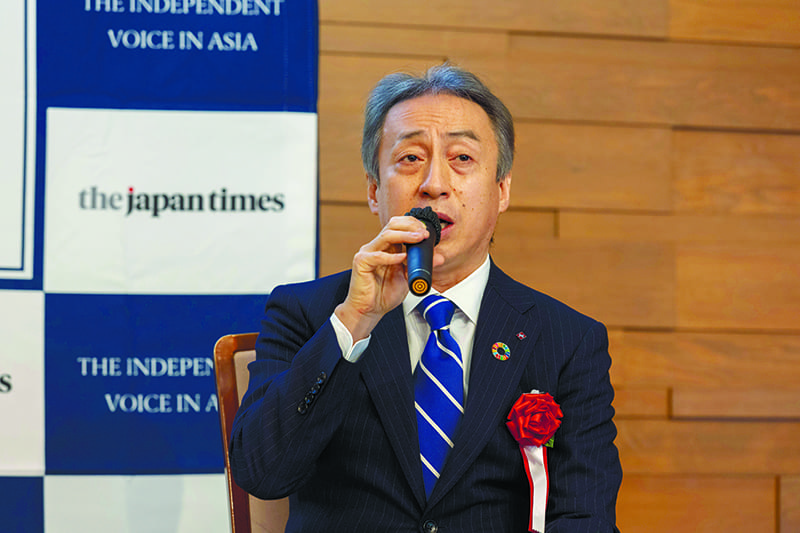
Nippon Life Insurance Co. Director and Managing Executive Officer

CLOMA: Cross-industry ties
The Japan Clean Ocean Material Alliance was launched in 2019 to proactively fulfill the social responsibility of companies and organizations that make or use plastics to also tackle the issue of ocean plastic waste. Currently, 478 companies and organizations have joined the alliance. The companies, mainly those involved in products for general consumers, are working to collect plastics that have already been retained and to prevent new outflows. Through public-private partnerships, CLOMA aims to accelerate innovation and reduce plastic waste to zero through the evolution and promotion of the “3Rs” (reduce, reuse and recycle) and the use of alternative materials. And it wants the world to adopt a Japanese model for a solution aimed at eliminating marine plastic waste. In addition to people from various links in the value chain, such as producers of raw materials, container manufacturers, brand owners and retailers, its members include machinery manufacturers, trading companies, consulting firms and industrialists. Moreover, local and national governments, nongovernmental organizations, research institutes and financial organizations are members, with local governments providing places to practice and research institutes providing technical support. These Japanese industries will bring together the technologies and knowledge they have cultivated over the years to ensure the recycling and utilization of plastics. “Being an alliance of cross-industrial companies is a unique characteristic and strength of CLOMA,” said Chika Morishima, chair of dissemination and promotion at the alliance.
To achieve 100% recycling of plastic products by 2050, CLOMA has defined and categorized its activities in detail and promoted them.
CLOMA aims to contribute to the world through collaboration and networking with ASEAN and global organizations to disseminate Japan’s various eco-friendly designs, recycling and system technologies, etc., to solve the problem of marine plastic waste. It holds events for business matching and has an online matching platform, and exhibits its activities at symposiums. In addition, the scale of its practices has been expanded by collaborating with local governments to set up collection boxes. Through these activities, its alliances have increased, and an increasing number of them have become commercialized. It also will promote initiatives that include a “backcasting” approach, describing an ideal future and then working backward to identify the actions that can make it happen.
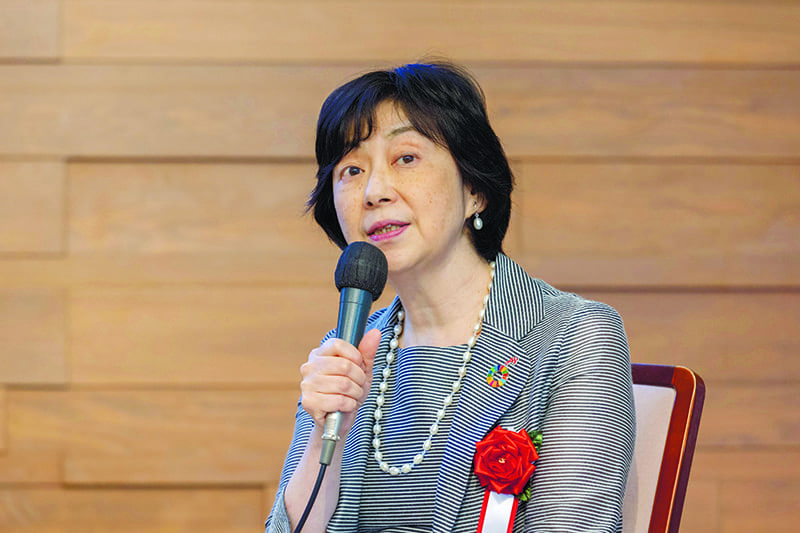
Japan Clean Ocean Material Alliance. Chair of Dissemination & Promotion WG
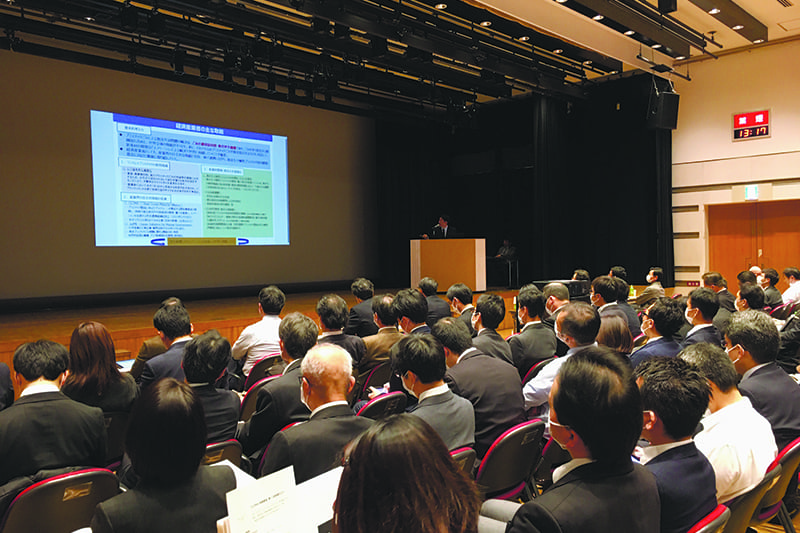
Getting everyone involved
It is necessary to work with other stakeholders to address social issues that are difficult to solve through individual company initiatives. NRI’s Hihara said, “We need to be ahead of the curve to revitalize industry and tackle environmental issues.” He added that it is important to work with stakeholders and the government to make changes.
Kao and Lion’s joint effort is another example of how companies that have competed with each other can work together to create a single social infrastructure. Okano from Lion thinks there are technologies that can be standardized and shared to benefit many stakeholders. Morishima from CLOMA also said it is difficult to tackle social issues alone, and we need a larger framework that transcends industries and business sectors, as well as cooperation between the public and private sectors.
Morishima also said it is important to link activities with business advantages, so they are more than just a way to exchange information. CLOMA urges member companies to actively and sustainably engage in its activities. It is also important to engage in activities that enable people to change their lifestyles naturally and tackle social issues on an ongoing basis rather than forcing them to do so, Okano said
Sato from Nippon Life Insurance mentioned the company’s efforts to develop local communities. With 12 million policyholders nationwide, Nippon Life Insurance takes the initiative on local issues for its customers. For example, in areas with high rates of cancer, sales staffers distribute leaflets to encourage health checkups to increase the cancer screening rate. At an office in central Tokyo, staff members deliver surplus food from companies, cafeterias and restaurants to a food bank. While conducting its main business of supporting the sustainability of society by providing life insurance, Nippon Life Insurance also hopes to continue to solve its customers’ problems through various activities.
The efforts of the winning companies and organizations to envision the future and take action for it has something in common with the activities of local governments in satoyama upland areas. ESG and satoyama activities have been considered different fields, but the two are actually linked from a sustainability perspective, Morisawa concluded.
Sustainable Japan Grand Prize
Nomura Research Institute Ltd.
Since our foundation, we have co-created shared values with our clients for solving social issues via consulting and IT solutions. We will continuously take on the challenge of realizing a sustainable society with our corporate philosophy, “Dream up the future.”
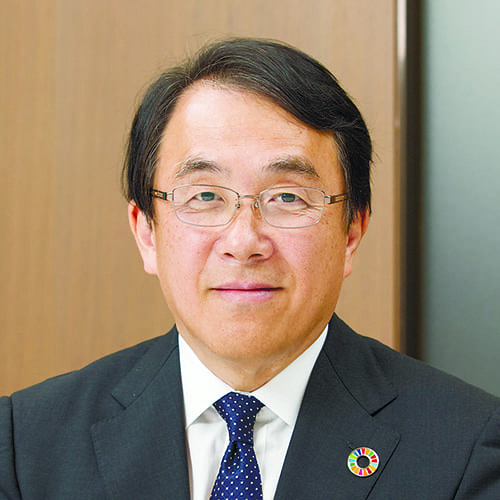

Sustainable Japan ESG Excellence Award
Lion Corporation
Upholding its founding spirit of “benefiting society through its business activities,” Lion makes efforts to solve environmental and social issues, provide products of toothpaste and detergent, etc. and create environmental friendly habits with consumers.
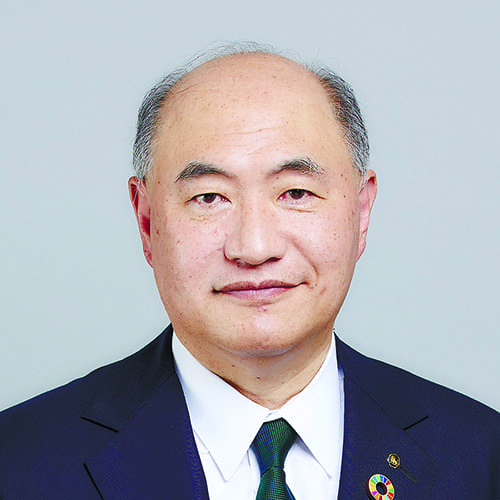
Sustainable Japan ESG Excellence Award
Nippon Life Insurance Co.
Nippon Life has been one of Japan’s leading life insurance companies, with approximately 14 million customers and ¥80 trillion in total assets for the entire group, operating with the philosophy of “co-existence, co-prosperity and mutualism” since its founding in 1889.
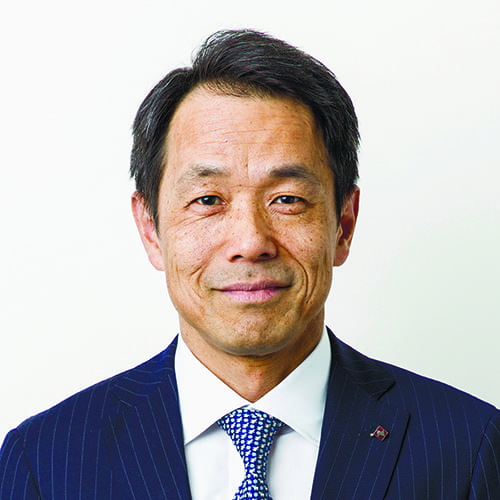

Sustainable Japan ESG Special Award
Japan Clean Ocean Material Alliance
It has become necessary to promote efforts to overcome the marine plastic litter issue. To decrease such litter, appropriate control of waste is urgently needed. CLOMA was established as a new platform that helps stakeholders to collaborate and accelerate innovation.
